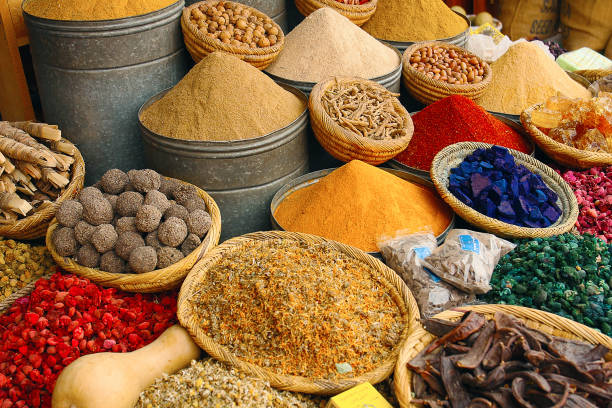Eating a healthy and balanced diet is crucial for maintaining good health and wellness. However, it can be difficult to find healthy foods that are also affordable, especially in countries where access to fresh and nutritious food is limited. Nigeria is no exception, as many people struggle to find healthy and cheap food options that fit their budgets.
Here are some of the best healthy cheapest foods in Nigeria that you can incorporate into your diet:
1. Grains
Rice, corn, and millet are affordable and easily accessible grains that are staple foods in Nigeria. These grains are rich in carbohydrates, which are an important source of energy for the body. Whole grains, such as brown rice, millet, acha (fonio) and cornmeal, are a healthier option as they contain more fiber and other essential nutrients.
2. Legumes
Beans, lentils, and peas are affordable and nutritious sources of protein, fiber, and other essential vitamins and minerals. Legumes are also low in fat and calories, making them a great option for those looking to maintain a healthy weight. Some common legumes in Nigeria like green beans, black-eyed beans, pigeon peas (fio fio), soybeans, and lentils can also be enjoyed in many ways here in Nigeria.
3. Fruits and Vegetables
Fruits and vegetables are an important part of a healthy diet, as they are rich in vitamins, minerals, and antioxidants. Some of the most affordable and nutritious fruits and vegetables in Nigeria include bananas, watermelons, oranges, lemons, pineapples, avocados, and African cherry (udara).
4. Nuts and Seeds
Nuts and seeds are great sources of healthy fats, protein, and fiber. Some of the most affordable options in Nigeria include groundnuts (peanuts), walnuts, melon seeds, and sesame seeds.
5. Fish
Fish is an excellent source of protein, omega-3 fatty acids, and other essential nutrients. Fish is also relatively cheap and easily accessible in Nigeria, especially around coastal states, making it a great option for those looking to add more protein to their diet.
6. Garri
Garri is another food that is relatively cheap in Nigeria. It is derived from cassava and is a major source of carbohydrates for millions of Nigerians in both rural and urban communities. When compared with other foods, Garri is not only cheaper but also very satisfying.
7. Fufu
Fufu is a starchy staple food that is widely consumed in Nigeria.
It is made by boiling starchy vegetables like yam, cassava, plantains, or cocoyam, and then pounding or mashing them until they form a smooth, dough-like consistency.
Fufu is typically eaten with a soup or stew, and is one of the healthy cheapest foods in Nigeria.
Fufu is a very filling and nutritious food. It is also low in fat and cholesterol.
When shopping for healthy and cheap foods in Nigeria, it’s important to look for options that are in season. Seasonal foods are often more affordable and fresher than imported or out-of-season options. You can also look for local markets, where you can find fresh produce at lower prices than in supermarkets.
It’s also important to make a meal plan and stick to a grocery list when shopping for food. This will help you avoid impulse purchases and overspending. Additionally, consider bulk buying, as purchasing larger quantities of food items can often result in savings.
In terms of preparation, try to avoid processed and packaged foods, as they are often high in sodium, sugar, and unhealthy fats. Instead, focus on cooking meals at home using fresh ingredients. This will not only help you save money, but it will also allow you to control the ingredients and cooking methods used in your meals, making it easier to maintain a healthy diet.
Conclusion
There are many affordable and healthy food options available in Nigeria, including grains, legumes, fruits and vegetables, nuts and seeds, and fish.
By budgeting for foods, making smart choices and sticking to a grocery list, you can eat well and live well on a budget.
YOU SHOULD ALSO READ THIS:
- 7 Common Healthy Legumes In Nigeria
- Nigerian Foods An Ulcer Patient Should Avoid
- 7 Healthy Fermented Foods In Nigeria
- 10 Nutritious Calorie-Dense Foods In Nigeria
- 5 Healthy Bitter Foods In Nigeria
- 10 Nutritious Igbo Foods In Nigeria
- 10 Nutritious Yoruba Foods in Nigeria
- 10 Nutritious Hausa Foods in Nigeria
- 10 Healthy Vegan Foods In Nigeria
- 10 Acidic Foods In Nigeria
- 15 Healthy Nigeria Foods That Reduce Belly Fat
- 8 Nutritious Nigerian Foods For Cold Weather
- 7 Healthiest Cooking Oils in Nigeria
Collins Nwokolo is a human physiologist, writer and health enthusiast. He loves writing helpful articles on health and fitness, which he enjoys sharing with everyone.






